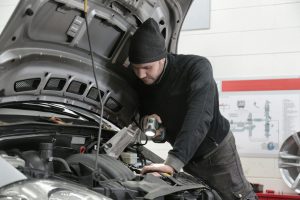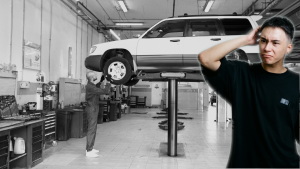In this post, we’ll do our best to help you decide whether nitrogen or regular air is the tire tonic your ride deserves.
Nitrogen

Let’s start with the basics. Nitrogen, despite its fancy name, is the same stuff we breathe every day – it’s odorless, and, well, it doesn’t taste like much. On the flip side, regular air is a mix of gases, including the trusty nitrogen and the ever-present oxygen.
But where it gets interesting is, the size and stability of those gas molecules.
Nitrogen’s molecules are like the sturdy oaks of the tire world – they don’t bail out as quickly as regular air molecules. That means your tires maintain their pressure longer, giving you better fuel efficiency and a longer tire life.
Nitrogen’s advantages don’t stop there. Fluctuations in tire temperature can wreak havoc on tire pressure, causing uneven wear and potential blowouts. Nitrogen keeps things cool, ensuring a safer journey.
Nitrogen does cost more; but the fuel savings from maintaining the correct tire pressure for a longer time may offset the additional cost.
Regular Air
No doubt, regular air has advantages too. It’s as common as a gas station, and it won’t burn a hole in your pocket. Most of us can find an air compressor or a gas station without breaking a sweat, and inflating your tires with regular air is easy.
And when it comes to convenience, regular air wins the “most accessible” award. Nitrogen can be a tad choosy; you’ll usually find it at select auto shops and dealerships, which might require a little detour. But regular air? It’s everywhere, from gas stations to your friendly neighborhood convenience store, so you can pump up your tires on a whim.

If you’re after top-notch fuel efficiency, a tire that refuses to quit, and steady temperatures, nitrogen’s the way to go. But if you’re all about ease and use a crowbar to open your wallet, regular air is a solid choice. The final decision? Well, that’s all about you and your ride. Consider a chat with your mechanic or tire specailist to dial in what’s best for your journey.





